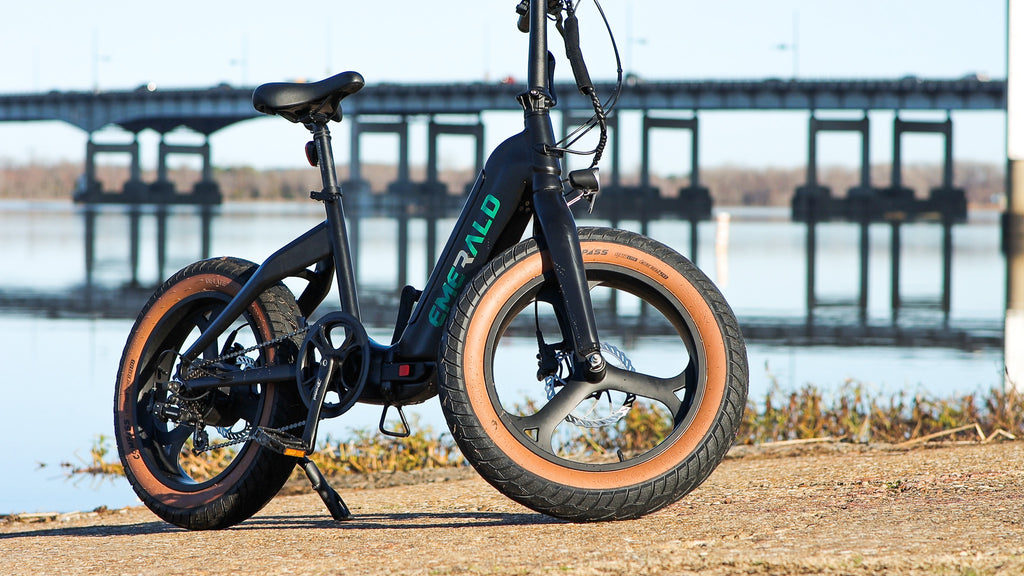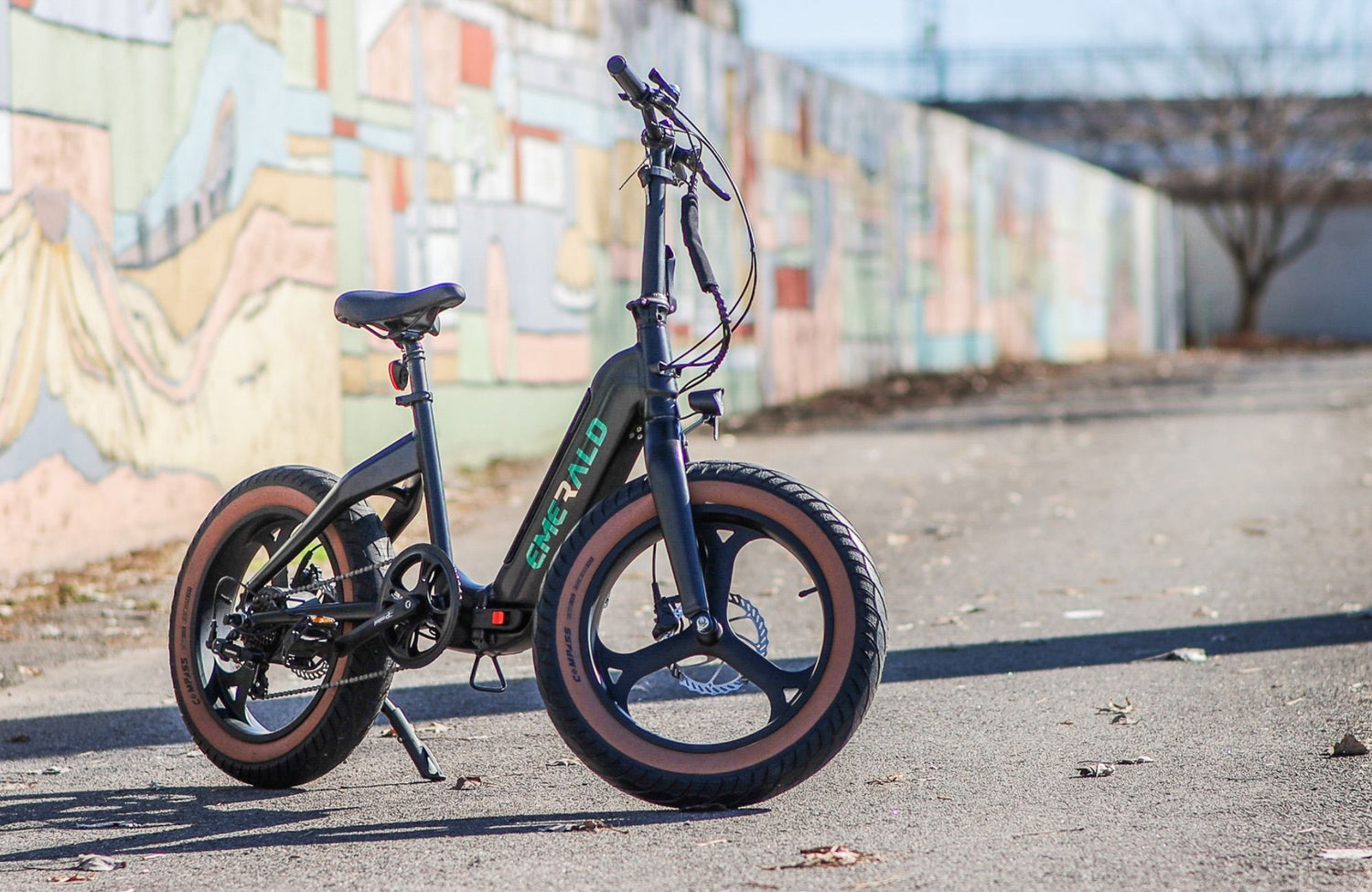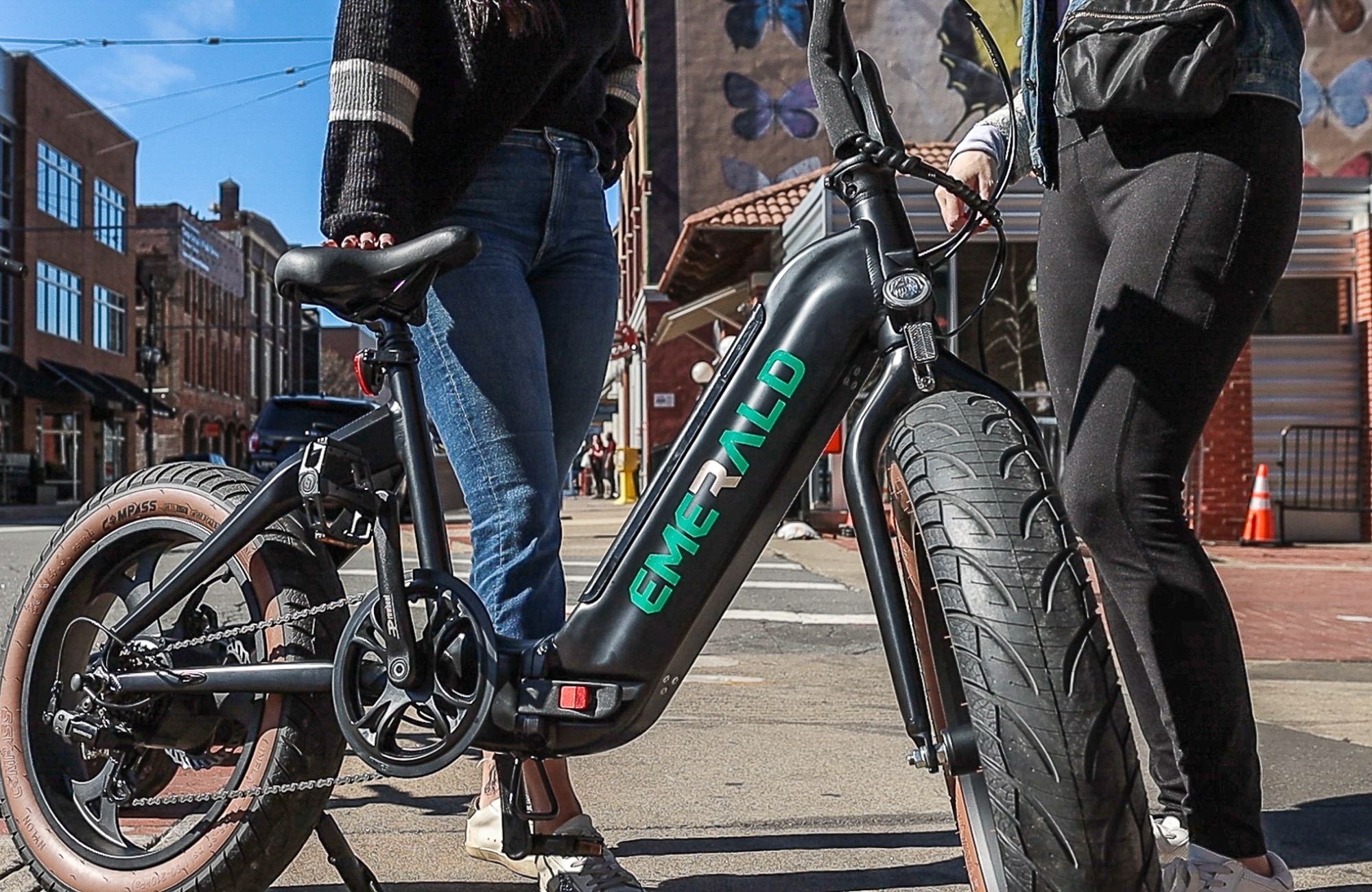Ebikes, or electric bikes, have been around for some time but have gained popularity in recent years because of their convenience and positive impact on the environment. Ebikes not only work well for leisure, such as helping riders get over rough mountain terrain, but they’re a great choice for commuting and short trips, particularly if you live in a bigger city.
More policymakers are headed toward the acceptance of ebikes, and you’ll readily find charging stations and other amenities for ebike riders in larger cities. This is in part because the environmental aspect of ebike usage is profoundly felt. Carbon dioxide is released from vehicles such as automobiles, trucks, and other vehicles on the road. While carbon emissions have seen a decline, in recent years carbon emissions are steadily rising again, according to Vox.
It’s estimated that an ebike generates 23 times less carbon per year than most automobiles, making it an optimal choice for those wanting to go green.

Why Are Ebikes Important for the Environment?
The burning of fossil fuels, such as gas and coal, has quite a bit to do with a serious environmental problem known as global warming. With so many big corporations and organizations around the globe, an individual may be unsure as to how to “do their part.” The transportation sector contributes significantly to global warming, so people can do their part by using more environmentally friendly modes of transportation.
Because an ebike is powered by a rechargeable electric motor, riders can choose whether to propel themselves with the pedals, the motor, or a combination of the two. Many ebikes have a top speed of 28 mph until a rider has to pedal independently, which makes them a great choice for getting around, especially in major cities where smog is a problem. Everyone that contributes to the reduction of the burning of fossil fuels can help the environment, and ebikes are emerging as the transportation of the future because of their significant environmental impact.
Environmental and Economic Benefits of Ebikes
Climate scientist Tom Lent recently conducted the E-Bike 1000 MPG Project, a study geared to examine the impact of electric bicycles and greenhouse gases. It’s blatantly obvious that an electric bicycle is more environmentally friendly than a gas- or diesel-powered vehicle, but just how much of an environmental impact do ebikes have?
There were several notable findings of the E-Bike 1000 MPG Project. When it comes to comparison with electric cars, ebikes are 10 to 30 times more efficient at fighting climate change. Ebikes also get 30 to 100 times more miles per pound of battery than an electric car. While this may not sound like it has an environmental impact, as more car manufacturers switch over to electric vehicles, there could be a shortage in the resources needed to manufacture lithium batteries.
Because of this, battery efficiency is important. Ebikes are also much easier to charge when compared with an electric car as they do not have the complex infrastructure that an electric car has.
The use of an ebike is also extremely cost-effective as they only cost less than one cent per mile to charge. Overall, ebikes are some of the most environmentally friendly and economical modes of transportation on the market today.
When ebikes were compared to gas-powered automobiles, the study determined that ebikes emit 40 to 100 fewer pounds of greenhouse gases. Ebikes also can travel 70 times farther than a gas-fueled car per pound of climate emissions. In California, it can be twice that number because of California’s electric energy mix.
Further Environmental Impact of Electric Bicycles
As ebikes have near-zero emissions when it comes to carbon emissions and greenhouse gases, ebike use prevents the release of approximately 500 pounds of carbon emissions. Because of the lack of emissions, ebikes also don’t create pollution. Heavy ebike usage in a major city that has a smog or pollution problem could have a significant impact.
Every ebike battery will need replacement at some point, and constantly replacing batteries has the propensity to fill up landfills. Lead battery waste is a concern. However, the batteries on ebikes are long-lasting, and it’s estimated that a rider will only have to replace the batteries in an ebike approximately five times over the bike’s lifetime. Also, in industrialized countries such as the United States, lead recycling is above 90 percent, meaning that the lead used in the batteries has most likely been manufactured with recycling material.
Riders can also charge their ebike batteries during off-peak hours. What does this mean? It draws harder from the power grid if the battery is charged midday, but if you charge your ebike at the end of the day during off-peak hours, you draw less from the power grid. Riders can also charge their ebike batteries using solar or wind power if it is available.
Ebike usage also helps save roadways. Cars and heavier vehicles wear out roads quickly, and repair is required. Not only is roadwork often a heavy tax burden, but the machines used to fix roadways also create more pollution and carbon emissions while the road is being repaired.
Overall, ebike usage promotes eco-friendly travel and is a terrific choice for those wishing to make a positive environmental impact. However, ebikes are also fun to ride too.

Why Choose an Ebike?
In addition to having a considerable positive environmental impact, there are also personal reasons to opt for an ebike. First of all, they are a very efficient form of travel and are six times more efficient than riding a train. Ebikes also offer exercise — while they’re motor-powered, you still have to press the pedals. An electric bike is a solid choice for those who are trying to lead less sedentary lifestyles or for the older generation that needs a light workout.
Ebikes also make it easier to get up hills, whether you’re in regular traffic or you’re off-roading. Ebikes can tackle tough mountain terrain and are often used by mountain bikers to get through difficult topography. Electric bikes give riders the ability to explore new places because of the motor. They also allow for faster riding, which is optimal when you’re commuting on your way to work. To that end, ebikes also help you pass through traffic jams easily in heavy traffic, so you’re able to be on time for work, commitments, and errands.
Not only do ebikes have a positive environmental aspect and are a perfect idea for those wishing to go “greener,” but they also have many personal benefits as well.








Leave a comment
This site is protected by hCaptcha and the hCaptcha Privacy Policy and Terms of Service apply.